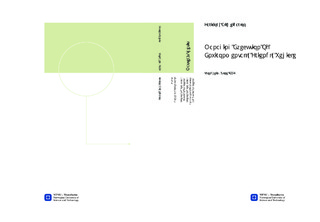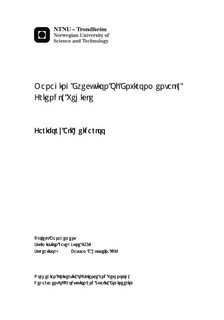| dc.description.abstract | Eco-marathon is an annual competition for student teams from high schools and universities around the world to design, build, test and race their energy efficient cars. Participating in this competition, teams have to deliver vehicles within either ‘Urban Concept’ or ‘Prototype’ categories. In the former, the vehicles must have ordinary four-wheel roadworthy design and in the latter cars should have futuristic design and maximum efficiency. Since 2008, Norwegian University of Science and Technology has taken part in Eco-marathon competition in urban concept category with a hydrogen fuel cell car (called DNV Fuel Fighter). After history of glory, the 2012 team decided to make a new vehicle from scratch for battery-electric class (DNV Fuel Fighter 2). Therefore, two objectives were defined for this project: • Winning the first rank award in battery-electric class of urban concept category • Winning communication and marketing award This decision made the project to be categorized with NPD projects. Distinct characteristic of this type of projects is significant uncertainty associated with the effort. Based on experience gained from managing Shell Eco-marathon 2012 at NTNU, four types of uncertainties made this project challenging: technological, development, organizational and intra-organizational. This master thesis focuses on describing such challenges in the project’s lifecycle and offers solutions to deal with them. Furthermore, a set of organizational and operational adjustments are proposed to promote the project at NTNU’s environment. NTNU’s 2012 team finished the competition by achieving the 5th rank in battery-electric class. Although the objectives weren’t met in this year, but project was accomplished successfully as almost all of the success criteria were met through this effort. | nb_NO |

